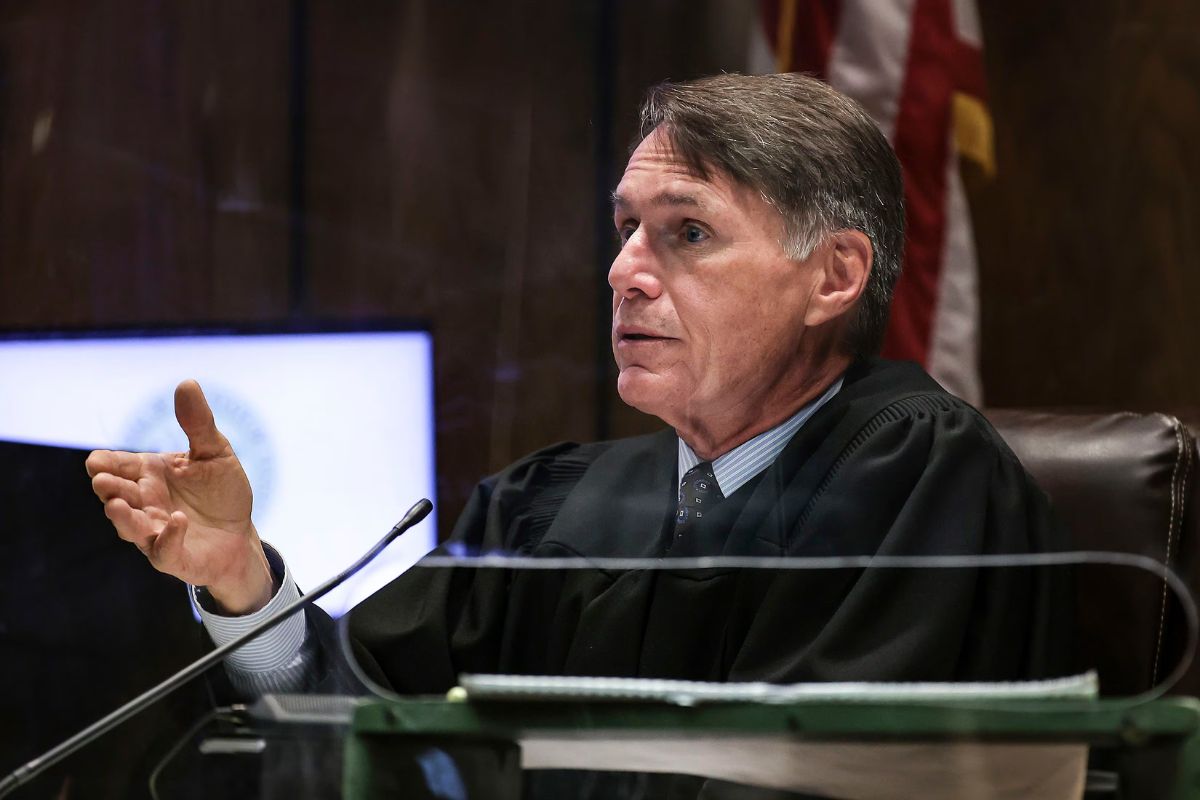Tennessee Judge Jailed After Cocaine Test: Judge Melissa Boyd of Tennessee had her bond revoked after testing positive for cocaine. This decision comes amidst legal charges of witness harassment and coercion. Boyd’s failure to comply with drug testing led to her remand into custody. Allegations against her involve attempting to influence witness testimony, particularly her former campaign manager, Lashanta Rudd.
Despite maintaining her innocence, Boyd faces potential removal from her position pending a vote by the Tennessee General Assembly. This case raises significant concerns about judicial integrity and ethical conduct, highlighting the importance of upholding high standards within the legal profession.
Judge Melissa Boyd’s Bond Revoked for Cocaine Use
Judge Melissa Boyd faced a significant setback in her legal proceedings when her bond was revoked due to testing positive for cocaine. This development occurred in the context of ongoing charges against Boyd, including coercion of a witness and harassment.
Despite being initially out of custody pending trial, Boyd found herself remanded into custody after multiple instances of testing positive for cocaine in March and failing to comply with drug testing protocols. The revocation of her bond underscores the seriousness of the situation and raises questions about Boyd’s adherence to legal requirements and expectations.
It also brings into focus the potential implications of substance use on an individual’s ability to fulfill judicial responsibilities. As the case unfolds, the circumstances surrounding Boyd’s cocaine use will likely be subject to further scrutiny, shedding light on the complexities and challenges inherent in maintaining the integrity of the Shelby County Criminal Court.
Allegations Against Judge Boyd
Accused of coercion and intimidation in relation to her former campaign manager, Lashanta Rudd, Judge Boyd’s legal troubles have deepened with allegations of attempting to influence witness testimony.
Boyd, elected in 2022, faces accusations of pressuring Rudd to provide false testimony or withhold truthful information in an official proceeding. The nature of Boyd’s interactions with Rudd has been characterized as potentially alarming or intimidating. These allegations suggest a concerning misuse of power and a potential obstruction of justice.
Despite the serious nature of the charges, Boyd has maintained her plea of not guilty in response to the accusations. The unfolding details of this case raise questions about the integrity and ethical conduct expected from a judge, particularly regarding interactions with individuals involved in legal proceedings.
As the investigation progresses, the veracity of these allegations and their implications for Boyd’s judicial career will no doubt be closely scrutinized.

ALSO READ: Child Protect Reveals Insights on House Bill 81
Legal Proceedings and Legislative Action
The upcoming vote by the Tennessee General Assembly on April 4 regarding the potential removal of Judge Boyd from her judicial position marks a critical juncture in the legal proceedings and legislative actions surrounding her case.
Boyd, who is scheduled for trial on April 24, had been suspended following allegations of threatening behavior, improper solicitation of funds, and substance abuse problems. The accusations against her have brought to light the challenges within the judicial system and the consequences that judges may face when found to be in breach of ethical standards.
The decision that the Tennessee General Assembly will make on Boyd’s removal will not only impact her career but also set a precedent for how the state handles cases of judicial misconduct. The vote signifies a pivotal moment in determining the accountability of judges and the measures taken to uphold the integrity of the judiciary. It underscores the importance of maintaining ethical standards within the legal profession and ensuring that those who serve in positions of authority are held to the highest standards of conduct.
News in Brief
The case of Judge Melissa Boyd underscores the significance of upholding ethical standards in the judicial system. The revocation of her bond due to cocaine use and witness harassment allegations has raised serious concerns about judicial integrity.
Legal proceedings and potential legislative action will be pivotal in addressing these issues and ensuring accountability within the judiciary. The implications of this case extend beyond Judge Boyd, emphasizing the need for vigilance in upholding the rule of law.

